|
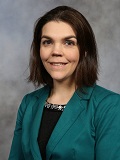 Sharon Tjaden-Glass, Sinclair Community College, Dayton, Ohio, USA Sharon Tjaden-Glass, Sinclair Community College, Dayton, Ohio, USA
Sharon Tjaden-Glass is an instructional media designer. She currently serves as the Community Manager for the ICIS. Her current interests are open educational resources, intercultural communication, instructional design, and elearning.
Like many of you, I did not know that when I left the TESOL 2019 Convention in Atlanta, Georgia that it would be another three years before I would have the opportunity to see some of my TESOL colleagues in person. I continued to seek out ways to engage with other professionals not only in the midst of the pandemic, but in the midst of a career change, as I transitioned from teaching ESL in higher education to working as an instructional designer in higher education.
One of the ways that I continued to contribute to the field was by serving as the Strand Coordinator for the Culture and Intercultural Communication (CIC) Strand for the TESOL 2022 convention. Through this experience, I gained an even greater appreciation for the time, effort, and care that goes into preparing and hosting a high-quality TESOL convention.
I had the opportunity to contribute to and facilitate the intersection session between the ICIS and MWIS, the Materials Writers Interest Section for a panel presentation about “Adapting Open Educational Resources for Intercultural Learning.” Although I was ultimately the only panelist attending the convention in-person, the hybrid presentation still drew a small gathering of attendees who were greatly interested in the topic. You can access the panalists’ materialsthrough this link here. What is my main takeaway from the experience of following the development of a TESOL Convention through the lens of a Strand Coordinator, proposal writer, proposal reader, and conference attendee? I can tell you sincerely that TESOL professionals are among the most dedicated, caring, and thorough educators who know how to keep their compass pointed to True North, toward the learner.
 Kendra Staley, American Councils for International Education, Samarkand, Uzbekistan Kendra Staley, American Councils for International Education, Samarkand, Uzbekistan
Kendra Staley is a teacher-trainer, developer of material and curricula, and ESL/EFL teacher. Her interests include teacher training, curriculum development, intercultural communications, and the use of social media in language acquisition.
Panels at conferences are such a fantastic way to learn about a variety of experiences from different people. In fact, intersection panels, like our MWIS-ICIS panel about Open Educational Resources (OERs), bring together Communities of Practices (COPs) whose interests converge; for us, it was adapting OERs which incorporate intercultural learning materials.
By participating in the panel, I learned about current trends in OERs from Sharon Tjaden-Glass when she highlighted the risk of cultural hegemony since the majority of OERs are created in the Global North. As well, Ramin Yazdanapanah explored important differences between relevant terminology, such as intercultural communication competence (ICC) education and pluricultural language education (PLE). Next, Amina Douidi detailed principles for developing interculturally oriented-language materials, such as OERs. She emphasized the benefits of promoting Global Englishes, recognizing and addressing power imbalances in representation. Then, Najma Janjua discussed how EFL textbooks incorporating local culture can be used as inspiration for OER material developers.
As for my contribution which focused on finding and adapting OERs for cultural responsiveness, I shared examples from teacher-training workshops with EFL educators in Colombia and Uzbekistan. You can find more details in "The Potential of Open Educational Resources for English Language Teaching and Learning: From Selection to Adaptation."
Hopefully, attendees to our panel also took away concepts and resources that will help them adapt OERs for intercultural learning with their own students.
 Dr. Najma Janjua, Kawasaki Medical School, Japan Dr. Najma Janjua, Kawasaki Medical School, Japan
Dr. Najma Janjua is a past chair of ESPIS, and a recipient of TESOL’s Award for Teacher as Classroom Action Researcher and Mary Finocchiaro Award for Excellence in Pedagogical Materials. Her research interests include EMP, L1-interference, and ELT in Asia.
The Call for Presenters for the intersection ICIS-MWIS referred to the challenges involved in the access to high-quality intercultural learning materials in under-resourced areas of the world and noted that OERs could increase affordability and access to such materials. However, the Call also stated that OERs may not meet the demand for high-quality intercultural learning because many are often created by authors in the “Global North” (U.S., U.K., Western Europe, Australia, New Zealand) and then used without many adaptations by users in the “Global South” (South America, Asia, Africa). This practice can exacerbate cultural hegemony while also making the content ill-suited to learners in different cultural contexts (King, Pegrum, & Forsey, 2018).
The TESOL 2022 ICIS and MWIS Intersection’s Call for Presenters caught my attention because it immediately brought to my mind pages and pages of high school ELT textbooks from several countries in the “Global South,” that portrayed a rich content of the respective local culture. My argument for the panel discussion would therefore be that some of the best resources for adapting the OERs produced in the so-called “Global North” would be the EFL textbooks produced locally in the “Global South”, citing examples from a rich content of local culture in the textbooks from Afghanistan, Pakistan, and Saudi Arabia.
All in all, being a part of this panel was another jubilant journey that entailed a great deal of sharing, learning and exploring while working with a wonderful group of panelists across different continents. It is my sincere hope that the insights gained from the session will be useful to the materials writers and will serve to facilitate access to culturally appropriate OERs for learners in the “Global South.”
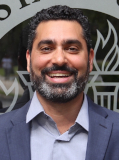 Dr. Ramin Yazdanpanah, Full Circle Language Learning, USA Dr. Ramin Yazdanpanah, Full Circle Language Learning, USA
Dr. Ramin Yazdanpanah is the Director of Full Circle Language Learning and Teaching. He is a teacher educator, an instructional designer, and consultant for TESOL projects far and wide.
Presenting with the ICIS -MWIS panel was well worth the time and effort. It served as an opportunity to deepen my collaboration with my ICIS colleagues and widen my network by working with members of the MWIS.
As representatives of the ICIS leadership, my colleague Sharon Tjaden-Glass and I met several times over Zoom with MWIS leadership to develop the abovementioned topic of the intersection session. We were fortunate to attract excellent presentations from our diverse panel members that covered multiple perspectives and dimensions of OERs and IC learning.
This panel presentation offered me an opportunity to present on different models of intercultural competence, some of the challenges and opportunities of utilizing OERs in the teaching of culture in ESOL/EFL contexts, as well as offer some resources for further exploration. It also allowed me to expand my understanding of the intersection of OERs and intercultural education.
As a member of TESOL for two decades it should come as little surprise, but I am always impressed by the supportive and professional communication that is provided by my TESOL colleagues. This was certainly the case when our panel met through video conferencing and collaborated through email and our shared planning documents. Of course, nothing compares to the opportunity of presenting at TESOL convention in person. However, this online experience has inspired me to continue our efforts to connect and collaborate in the years to come!
 Dr. Amina Douidi, DEI and Intercultural Communication consultant in ELT, UK Dr. Amina Douidi, DEI and Intercultural Communication consultant in ELT, UK
Dr. Amina Douidi is a Diversity, Equity, Inclusion (DEI) and Intercultural Communication consultant in the field of ELT. She currently serves as ICIS Newsletter co-Editor.
I applied to participate as an online panalist for the ICIS-MWIS intersection session without a full grasp of the Convention’s scale and stakes. The collaborative process crafted by Sharon and Ramin has certainly shaped my contribution in the best of ways. As summarised by my co-panalist Kendra Staley, the result was a harmonious and multi-faceted discussion which stayed with me for weeks following the Convention.
The ICIS-MWIS intersection Call highlighted the need for high-quality OERS that are interculturally relevant. I had the experience using freely available resources and adapting them to my teaching context. However, for this panel discussion, I wanted to experiment with the intercultural theories and design ELT worksheets that are culturally informed with the potential to promote intercultural learning. For concerns of systematicity and practicality, I’ve put together three principles to design interculturally-oriented materials: 1) Variety in representation, 2) Complexity of representation and 3) Intentionality through Learning Outcomes (LOs) and instructions which purposefully target intercultural learning. I am not sure if these principles have resonated with the audience. However, I am certain that my picture in my traditional Algerian, Tlemcenian, wedding outfit has caught the attention of the people attending in-person:
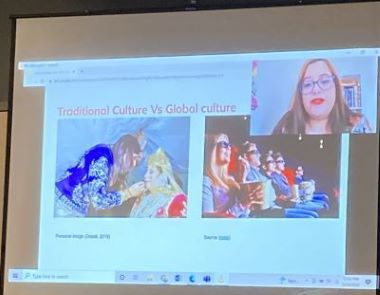
Photo from TESOL 2022 Convention taken by Amina Bektache who attended the event in-person.
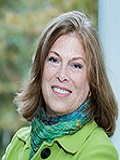 Dr. Leslie Bohon, University of Richmond, US Dr. Leslie Bohon, University of Richmond, US
Dr. Leslie Bohon currently acts as ICIS Co-Chair Elect. She also teaches international students and conducts intercultural learning programs at the University of Richmond in Richmond, VA, USA as Director of English Language Learning.
Members of the ICIS leadership team met at the 2022 TESOL Convention in Pittsburgh to plan, present, commune, and build. As a co-editor of the newsletter, this was my first time meeting with the ICIS team in person. When I came on as a Member-at-Large, we were in the midst of Covid, so we met diligently during those years online. We were productive, effective, and congenial. I knew we would be at least as effective in person. But, I did not expect to enjoy our work time together so much. We “talked shop” over dinner, chatted with passers-by at our booth, met for cocktails/mocktails, and planned more ICIS activities. What a wonderful opportunity to meet, work, and play together in person! I’d like to encourage all of our ICIS members to make an effort to come to the TESOL Portland 2023 Convention to work and learn in person. If you are interested in ICIS, we welcome you to join us now, online, and in March 2023, in person!
Here are some photos testifying to the camaraderie and the wonderful time spent at the TESOL 2022 International Convention in Pittsburgh.
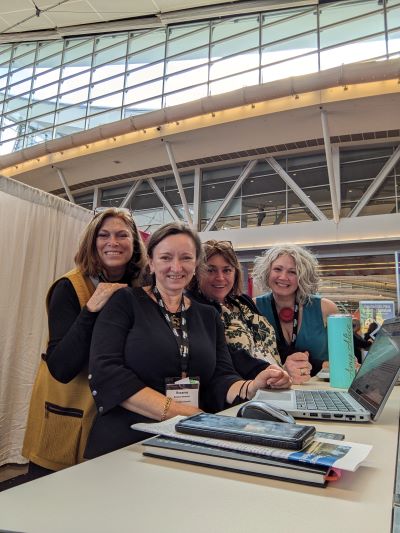
From left to right: Leslie Bohon, Roxanna Senyshyn, Barbara Lapornik and Amy Alice Chastain
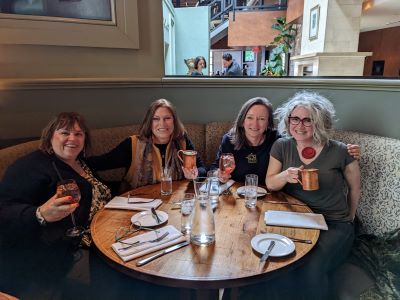
From left to right: Barbara Lapornik, Leslie Bohon, Roxanna Senyshyn and Amy Alice Chastain
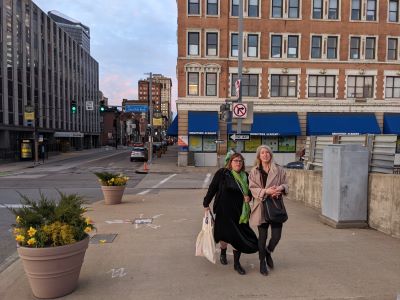
From left to right: Barbara Lapornik, Jennifer Lacroix
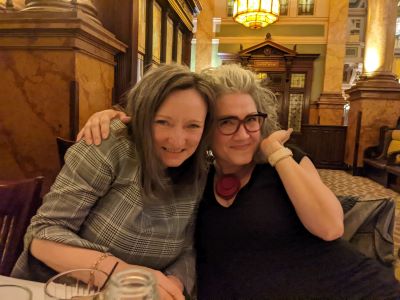
From left to right: Roxanna Senyshyn and Amy Alice Chastain | 
